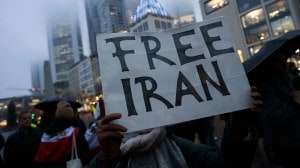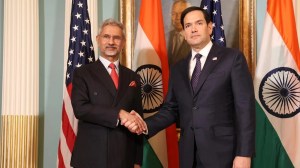An ugly reminder
There is always a method in a massacre. The intent and message of the latest incident that claimed some 40 lives in Chitti Singhpura villa...

There is always a method in a massacre. The intent and message of the latest incident that claimed some 40 lives in Chitti Singhpura village in south Kashmir, going by its timing and method, is as clear as daylight. And as if to underline the planned nature of this brutality, Baramullah district also witnessed a grenade attack on a police station and the torching of a local politician8217;s home. The attacks were clearly meant to inform US President Bill Clinton, currently on a visit to New Delhi, that terrorists from across the border are unfazed by any gestures of friendship that the US may wish to make to this country. It is meant to convey in unmistakable terms that a recourse to violence on their part is very much on the cards, no matter what any force on earth may feel about the importance of seeking a peaceful resolution to old hatreds. It also underlines the fact that the forces of terrorism, far from declining, are growing from strength to strength.
Indeed, both Indian Prime Minister A.B. Vajpayee andthe US president perceived the import of the incident. As Vajpayee aptly observed, whenever there are chances of India and Pakistan coming together, there is a deliberate design to foment trouble, create sabotage and encourage killings and mass murders.
The significance of the latest attack was the deliberate singling out of Sikhs at the Chitti Singhpura village. This community, which has had historic and geographic ties with Jammu amp; Kashmir, has thus far been spared the mindless violence that the state has been witness to. The conscious shift in strategy is similar to the sudden massacre of 35 labourers in Himachal Pradesh8217;s Chamba district in August 1998. The attempt then, as now, was to make it appear that the writ of the terrorist runs over a wider area than estimated or made provision for. But it is precisely this unpredictability and capacity to strike at will that lends terrorism its dangerous potency.
The US president has assured his Indian hosts that he will take up the issue of cross-border terrorism with General Pervez Musharraf when he meets him later this week. Pakistan8217;s military regime is looking to the US president to lend it some much-needed international legitimacy. President Clinton must now use the considerable leverage he has with the present dispensation in Pakistan to ensure long-term and measurable efforts to withdraw support to known terrorist outfits. Musharraf8217;s record on this score has been particularly unedifying. A dreaded outfit like the Harkat-ul-Mujahideen has been allowed to function freely in that country, even after its role in the recent hijacking of IC-184 was established beyond a shred of doubt.
To date, the four desperados who hijacked the plane are free men, despite their known links with Pakistan. The latest attack, too, is believed to have been masterminded by the Lashkar-e-Toiba and the Hizbul-Mujahideen, both of which have strong links with Pakistan. With the Holi massacre in Kashmir, the shadow of the terrorist has now fallen irrevocably on the Clinton visit to the subcontinent. The issue can no longer be sidestepped.
- 01
- 02
- 03
- 04
- 05































